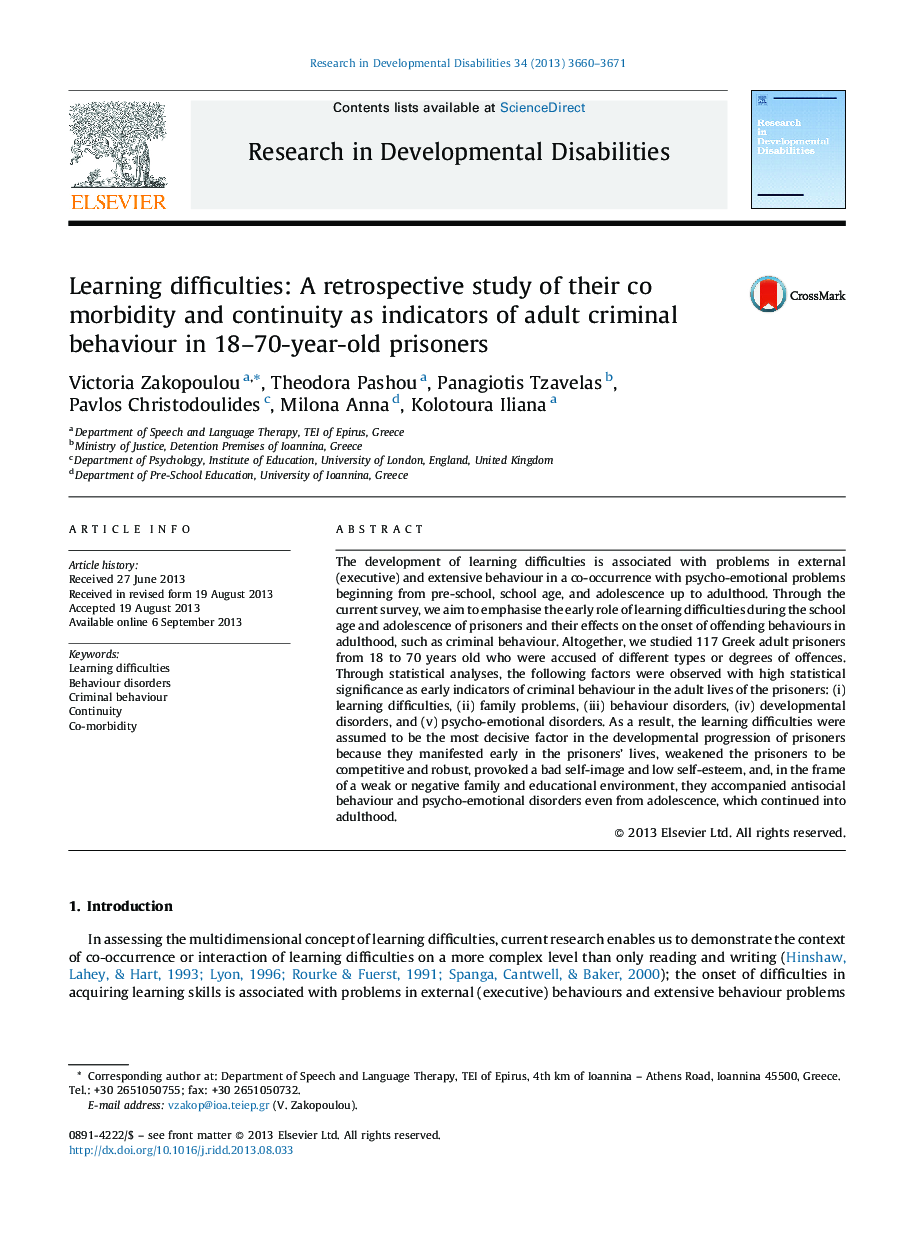| Article ID | Journal | Published Year | Pages | File Type |
|---|---|---|---|---|
| 10317611 | Research in Developmental Disabilities | 2013 | 12 Pages |
Abstract
The development of learning difficulties is associated with problems in external (executive) and extensive behaviour in a co-occurrence with psycho-emotional problems beginning from pre-school, school age, and adolescence up to adulthood. Through the current survey, we aim to emphasise the early role of learning difficulties during the school age and adolescence of prisoners and their effects on the onset of offending behaviours in adulthood, such as criminal behaviour. Altogether, we studied 117 Greek adult prisoners from 18 to 70 years old who were accused of different types or degrees of offences. Through statistical analyses, the following factors were observed with high statistical significance as early indicators of criminal behaviour in the adult lives of the prisoners: (i) learning difficulties, (ii) family problems, (iii) behaviour disorders, (iv) developmental disorders, and (v) psycho-emotional disorders. As a result, the learning difficulties were assumed to be the most decisive factor in the developmental progression of prisoners because they manifested early in the prisoners' lives, weakened the prisoners to be competitive and robust, provoked a bad self-image and low self-esteem, and, in the frame of a weak or negative family and educational environment, they accompanied antisocial behaviour and psycho-emotional disorders even from adolescence, which continued into adulthood.
Related Topics
Life Sciences
Neuroscience
Behavioral Neuroscience
Authors
Victoria Zakopoulou, Theodora Pashou, Panagiotis Tzavelas, Pavlos Christodoulides, Milona Anna, Kolotoura Iliana,
